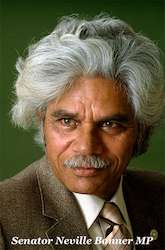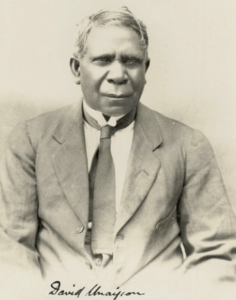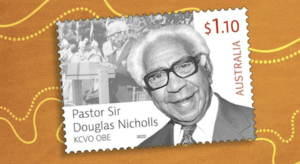THE VOICE TO PARLIAMENT
August 25th, 2023Most Australians aspire to do what is right and fair for all people who live in this great country of Australia.
We are charged to be diligent in responding to the proposal for a Aboriginal and Torres Strait Islander “Voice” that will be set before us in a referendum.
“Yes or No?”, that is the question on a Aboriginal and Torres Strait “Voice” to the Parliament. I ponder this question under three questions.
Do Aboriginal and Torres Strait people need a separate voice?
Will a voice to parliament be helpful.?
Will a voice to parliament be harmful?
The claim that an Aboriginal and Torres Strait Voice is needed suggests that Aboriginals and Torres Strait Islander people are a specifically needy class of people who need help.
In 2023 this is not true of most Aboriginal and Torres Strait people living in Australia.
Increasingly, a big percentage of Aboriginal and Torres Strait people have taken opportunity of education and hard work and are seen standing side by side with the mix of national backgrounds in this nation.
Aboriginal and Torres Strait people pay tax, car registration to support roads, electricity, phone, and internet, buy food and merchandise to support the economy, and are covered by the same pay awards as all Australians.
More often in 2023, the local doctor may be aboriginal, or Torres Strait of origin, or your nurse, or your dentist, solicitor or your children’s school teacher, or your tradesperson.
Aboriginal and Torres Strait people are part of Australian artistic community, songsters, actors, television personalities, and church ministers.
They are part of our nation’s charity workers, and celebrated sports heroes.
 Aboriginal elected members sit in our parliament with opportunity to bring forward issues of debate.
Aboriginal elected members sit in our parliament with opportunity to bring forward issues of debate.
We celebrate the diversity of our Australian community.
We acknowledge our differences but we can all share the goodness of this country .
All Australian women can give birth on the same beds in hospital.
We attend the same public hospitals.
The ambulance is available to all alike, as is the fire and police department.
We sit in the same cafes.
We sit side by side in school class rooms, theatres, events and swim in the same pools and can be free to enjoy our beaches together.
We drive on the same roads; enjoy electric power and internet.
We travel on the same buses, trains and planes.
We can all eat pizza, fried rice, taro, curry, fish and chips, Maccas, kangaroo or pavlova.
To own a house is hard for all Australians at this time but Aboriginal and Torres strait people have the same opportunity as any other, to sacrifice, work hard and save – and many have.
More Aboriginal bankers, developers, construction company owners, realestate managers would be helpful!
We acknowledge that some Aboriginal and Torres Strait people are less privileged.
The media pictures portray this as the pervading condition of all Aboriginal and Torres Strait people.
This is not so.
Most Aboriginal people stand tall in their own wellness. 
Poverty and hard times are not unique to Aboriginal communities.
We know that there are people of every national background in Australia living in shameful poverty. (The media cameras seem to be selective in their portrayals!)
Setting up a separate “voice” for all Aboriginal people is not helpful , but demeaning.
Our parliament, and Australians of all kinds, must do better for all Australians of all colours who fall under the banner of underprivileged.
So, – of all Australians, are Aboriginal and Torres Strait people so needy that they need a ”Voice” to speak for them?
Most Aboriginal and Torres strait people do not.
Broadly speaking, the majority of Aboriginal and Torres Strait people can work out their own lives.
Their challenges identify with the challenges of all Australians.
They live their own good lives in their own way.
Aboriginal and Torres Strait peoples manage their differences like the rest of Australians.
Listening and observing the loud “chatter” of the strong promoting voices in the “yes” campaign it appears that there is a bias towards woke agendas.
For example, not all Aboriginal and Torres Strait people welcome gender fluidity books and teaching in their schools.
Many would rather not have rainbow flags at their village festivities.
Some do – some don’t.
Many Australians of all kinds are offended at the exoneration of ancestral spirits and their participation in their lives.
Aboriginal and Torres Strait people are articulate and literate, competent with computers, emails, and letter writing.
They are skilled and colourful debaters.
 They can organise peaceful protests and demonstrations.
They can organise peaceful protests and demonstrations.
They are more than able to make presentations to their political representatives and councils in their local areas “under their own steam.”
They do not need a cohort of mostly unrelated random, often “out of touch” people as their “Voice.”
There is no one “Voice” that fits all Aboriginal and Torres Strait people.
The bigger portion of Aboriginal and Torres Strait people are just as able as anyone else to have conversations as to what is best for their family and community.
Yes, a voice to parliament will be harmful.
Humanity in Australia is well and truely in the mixing bowl and there is no way that the ingredients in the mix can be separated into its individual parts.
That aboriginal man is the blond girl from Norway’s husband.
That Greek beauty is married to that handsome black man.
That Aboriginal lady picking up that fair skinned, red haired, Irish child is her grandmother.
The children at the birthday party , all with diverse skin colours, are cousins.
Aboriginal people are husbands, wives, aunties, uncles, cousins, boyfriends and girlfriends , bosses and work colleges, and team members; all thrown in the mixing bowl with English, Chinese, German, Irish, Greek, Italian , Indian etc, ect, etc.
Blood flowing through the veins of Australians is amazingly and excitedly mixed.
Australians of all kinds have sad histories – convicts, orphans, refugees, separated from culture, family and friends.
Division will not progress our national unity.
It will be more useful to accept and celebrate our differences; live in love, acceptance and forgiveness, and help each other where it is needed and not define one culture as needy.
I am not denying that Australia can do better for some remote Aboriginal people living “on country”.
It is also important to note that the media portrayals of disarray of Aboriginal people is not true of all Aboriginal people living “on country”.
Some communities have good Eldership that serves them well.
 Aboriginal Pastors with increasing congregations, free of alcohol, drugs and gambling need to be celebrated.
Aboriginal Pastors with increasing congregations, free of alcohol, drugs and gambling need to be celebrated.
When the registered number of Aboriginal and Torres Strait Australians on the national census is noted, and then compared to the number of Aboriginal people “on country” who are living in disarray, it will show the percentage of people for whom a voice could be needful is very small; a very small percentage, at an enormous price!
At this point most remote “on country” communities have battery power, water, and limited housing.
Most communities have a bus service to take the children to school.
The “Voice” money could go a long way in building more houses, building guest accommodation to allay overcrowding.
It could provide more clinics for mobile visiting dentists, doctors, nurses and child care helpers and midwives.
It could build aged care facilities with local staff.
It could assist local young people to set up businesses like community stores selling basics, or butchers in community, selling frozen kangaroo, and maybe camel for the pets, or cooked food for community purchase.
It could provide housing with aboriginal house parents for students in high school and university.
This sounds a lot but would probably be less expensive than a dozen or so random people as a”Voice” that clearly states that they do not plan to be a service provider Agency!
That leaves the hundreds of Aboriginal agencies with the thousands of staff that are already in place to continue the work!
It calls on the existing Aboriginal members of parliament to speak up and be a voice where need exists on the ground in communities.
It calls on Aboriginal people “On Country” to accept personal responsibility and decide to change and commit to work hard and plan to do so.
It calls for Aboriginal “heroes” to infiltrate their people with goals, ambition and inspiration, and identify avenues where they can help.( Like the “pink” day at football, maybe we could have a “yellow day” to raise basket ball hoops, skate board runs, cricket pitches and why not a swimming pool! etc etc! —- )
All this excites me!
Honestly, the proposed “Voice” of selected people (by whom?) scares me, and I can’t help feeling there is an political agenda behind “The Voice” that will be long term national trouble.
The Voice will not be helpful .
It will divide us all.
Even at this stage it is dividing us.
Most Aboriginal and Torres Strait Island people want to live in peace with all Australians.
The proposals in the Voice are not for peace.
There will be conflict, anger, division and the only people advantaged will be the lawyers.
The larger political cohort in Canberra of elected members and the Westminster democratic government that is for all Australians seems safer than an unrelated small group of chosen people with an unknown agenda.
